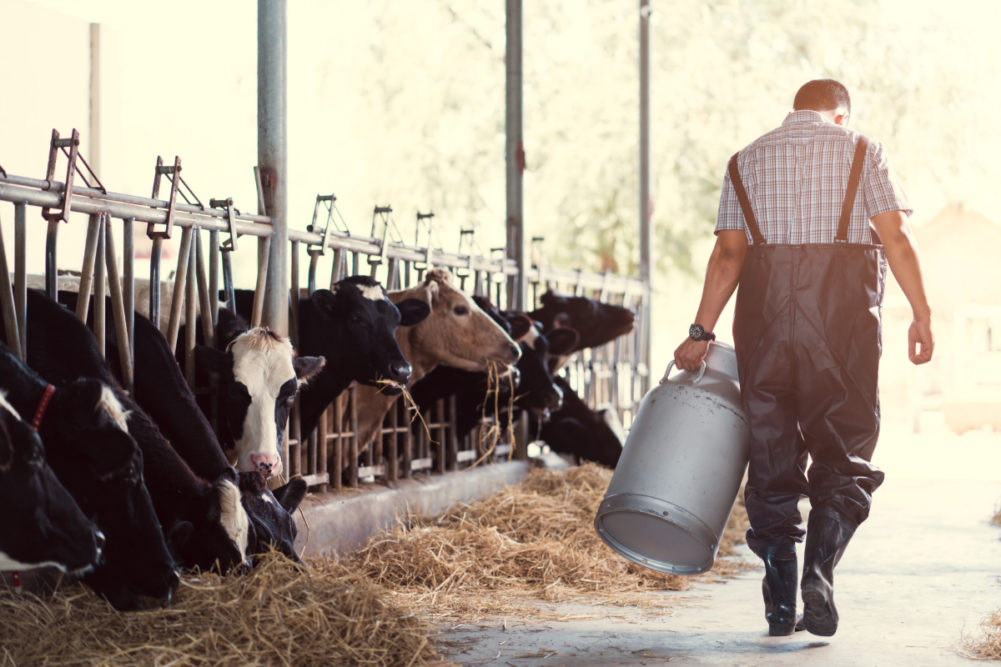WASHINGTON — The dairy industry expects to lose $5 billion to $10 billion in sales over the next six months as restaurants and schools remain closed due to the spread of COVID-19, said Andrew Jerome, director of external and member communications for the International Dairy Foods Association, Washington.
Groups representing dairy farmers and cooperatives in the Midwest urged the US Department of Agriculture to provide direct aid to farmers and to purchase mass quantities of dairy commodities such as non-fat dry milk, butter, cheddar, mozzarella, other Italian styles of cheese and dairy products purposed for use by restaurants and other foodservice vendors.
Dairy farmers, facing oversupply due to diminished foodservice business and weakened export demand, are forced to discard roughly 10% of the milk produced, despite demand for dairy products at retail remaining strong, Mr. Jerome said.
“While localized stocking issues may arise from time to time, Americans will continue to have a steady supply of fresh, nutritious dairy products through the outbreak,” he said.
Total store dollar growth for dairy products are up 60% over the same period last year, according to data from Information Resources, Inc. Year-over-year volume for refrigerated dairy milk grew 34%, while shelf-stable dairy milk is up 29%, powdered milk is up 307%, natural cheese is up 66%, butter is up 105%, ice cream is up 36% and yogurt is up 23%, according to IRI data cited by the IDFA.
“However, with COVID’s impacts on the economy expanding, the challenge the industry is facing is oversupply,” Mr. Jerome said. “Dairy farmers, unlike other sectors of the economy, cannot just shut down. Their cows continue to give milk. As entire swaths of the economy —namely foodservice — are paralyzed and a lot of food —especially fluid milk — is perishable, the potential for food insecurity and food waste on the scale we’re facing is unprecedented.”
In a letter to the USDA, groups including Cooperative Network, Dairy Business Association, Edge Dairy Farmer Cooperative and Wisconsin Cheese Makers Association wrote, “Direct relief to dairy farmers and a substantial purchase of dairy commodities by USDA can ensure our industry will remain fiscally able to function in its primary role of feeding the nation and the world.”
Citing the mass closing of restaurants, schools and other foodservice outlets, the groups stated commodity dairy prices have plunged and will create financial hardships for farmers.
The recently passed CARES Act provides $14 billion for the Commodity Credit Corp., $9.5 billion for an agriculture disaster relief fund, $25 billion for SNAP programs and $450 million for food banks.
“This bill enables unprecedented support for farmers and unprecedented commodity purchases, and we need USDA to bring these forms of aid to bear immediately,” the groups said.





